Don’t Harm Your Body With These Bad (But Common) Shower Habits
Health
Have you ever considered the “right” and “wrong” ways to shower? Dermatologists have, and they’ve warned people about common, but unhealthy, shower habits. These practices can dry out your skin, damage your hair, and even spread diseases.
Experts have identified health concerns about everyday habits, such as keeping your loofah in the shower. If you enjoy a long shower, you’ll want to keep reading.
It’s The Worst Place To Wash Your Face
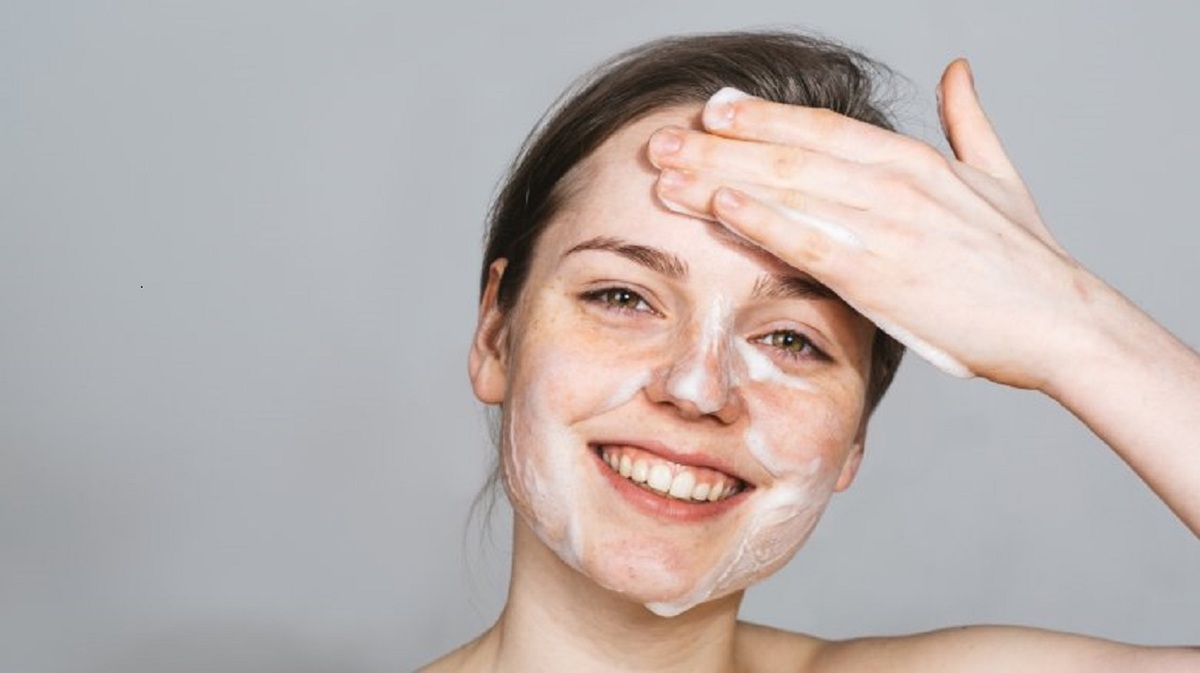
Although washing your face in the shower saves time, most dermatologists advise against it. In short, showers are too hot, too pressurized, and just too much water. According to dermatologist Hadley King, the skin on our faces will dry out if it’s in water for too long. Remember, facial skin is more sensitive than body skin.
On top of that, most showers are hot enough to aggravate the skin. Overly-hot water can dilate blood vessels or even break them. If you turn down the temperature and the pressure, you can wash your face in the shower, says Dr. King.
Don’t Rub Dry
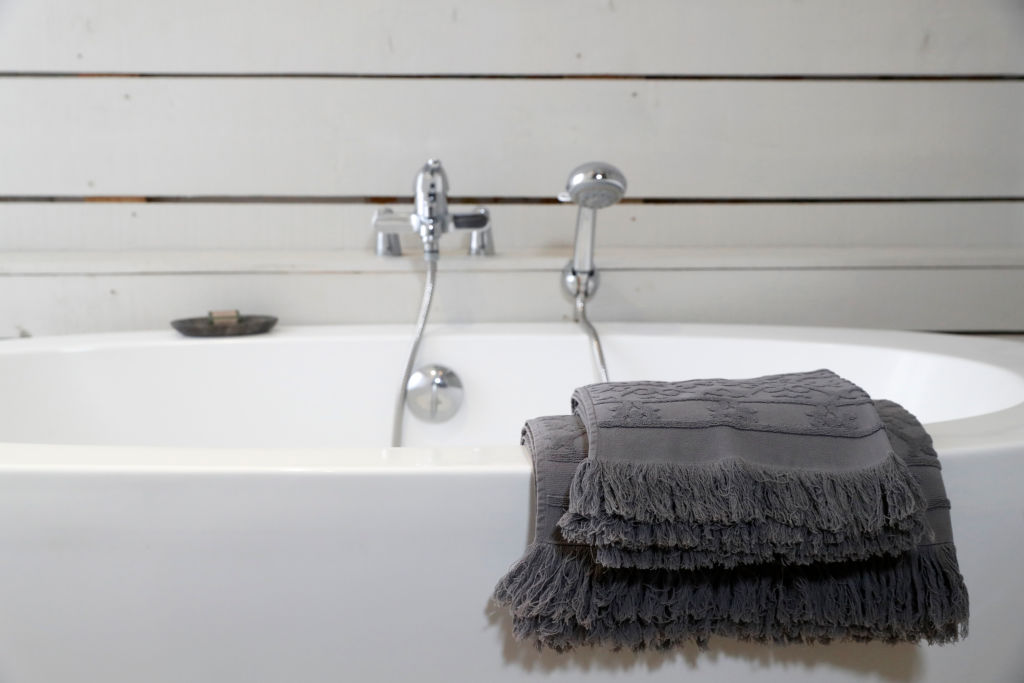
Are you drying your body too harshly? If you can describe your routine as “rubbing a towel,” you are. Drying the body should be more of a gentle pat. Hurriedly rubbing yourself dry may aggravate your skin, which will dry it out.
When you step out of the shower, don’t scrub, rub, or wipe yourself dry. Use a towel to gently pat your body. Doing so will keep the moisture on your skin without irritating it. The same goes for your hair; if you dry your hair in a rush, the fragile strands could break off.
How Long Is Too Long?
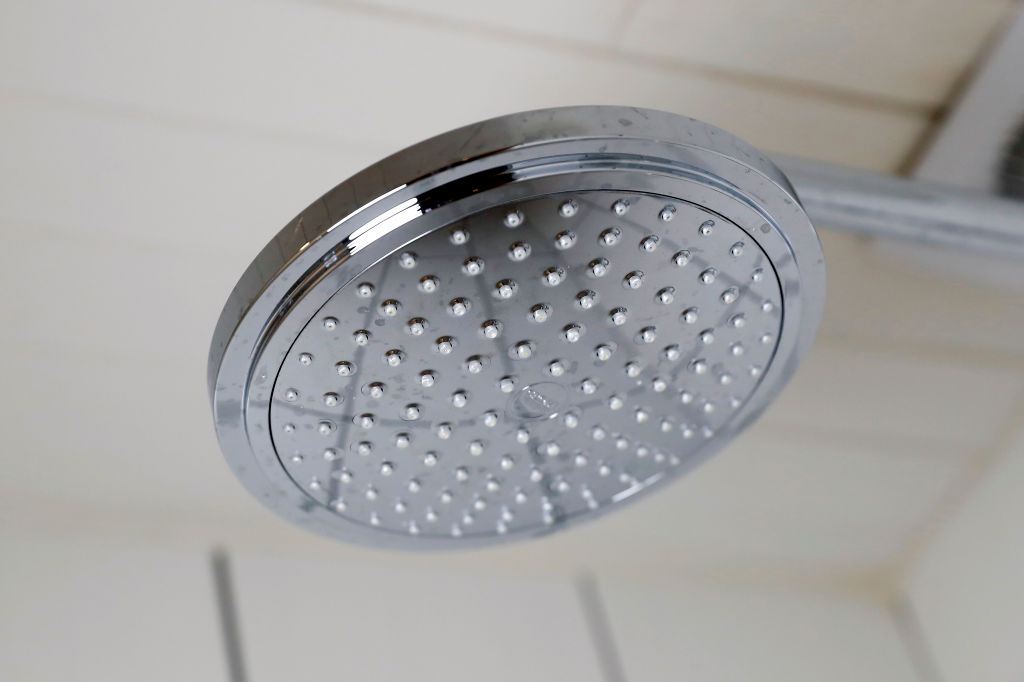
Few things are more relaxing than a long, hot shower. But the longer your shower takes, the more your skin will suffer. Why? Because the cells that defend your skin, keratinocytes, are the same that produce your skin’s oil. While it’s good to wash away some of this bacteria-ridden oil, washing it for too long will irritate your skin, making you feel itchy and dry.
But how long is too long? Dermatologists told Insider that an ideal shower lasts between five and fifteen minutes. In general, the longer your shower, the more damage your skin could receive.
You Don’t Need To Shower Every Day
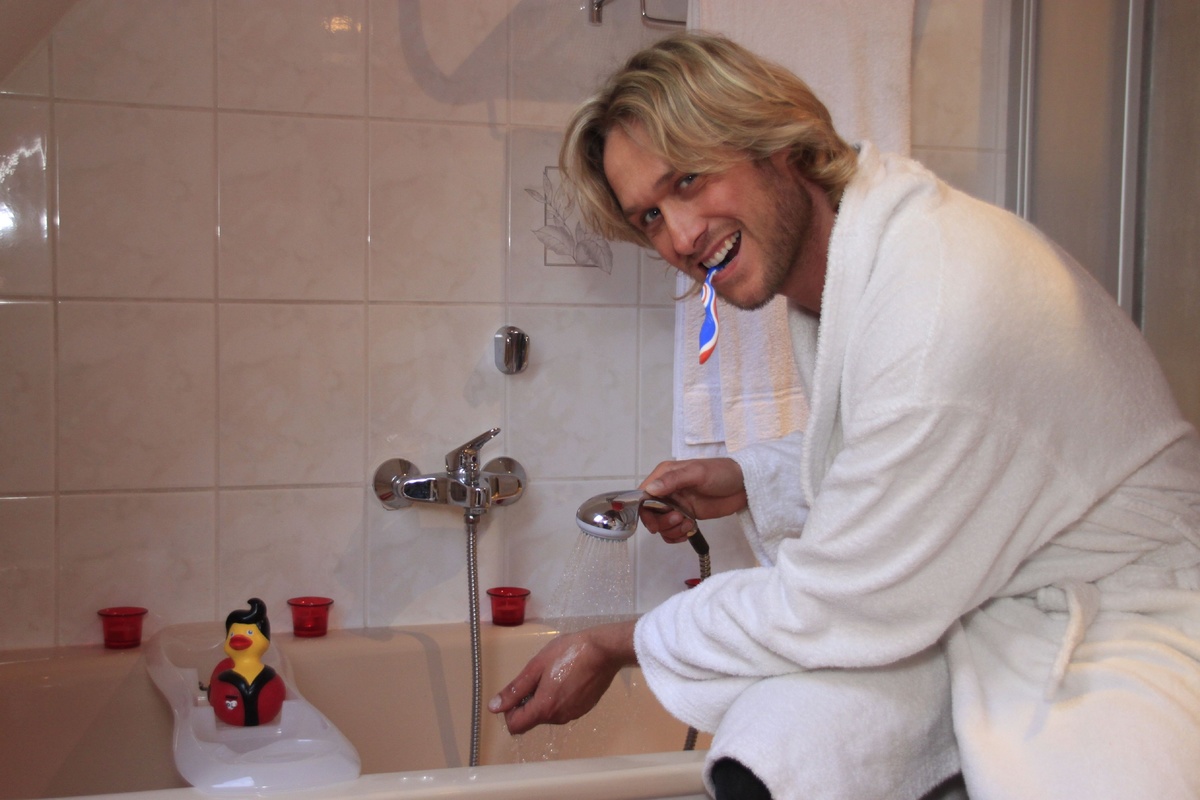
Showering more makes you cleaner–right? Dr. Elaine Larson, an infectious disease expert, asserts that showering every day could actually make you sick. Over-showering dries out the skin by ripping away natural oils, and bacteria easily slip into those tiny cracks. To prevent disease, washing your hands is mostly adequate, says Larson.
“I think most people over-bathe,” Dr. C. Brandon Mitchell, a professor of dermatology, told Time. “Your body is a naturally well-oiled machine. A daily shower isn’t necessary.” If you want to shower daily, lather your armpits and groin, but avoid the rest. Over-soaping your body will dry it out.
Keep Body Wash Off Your Face
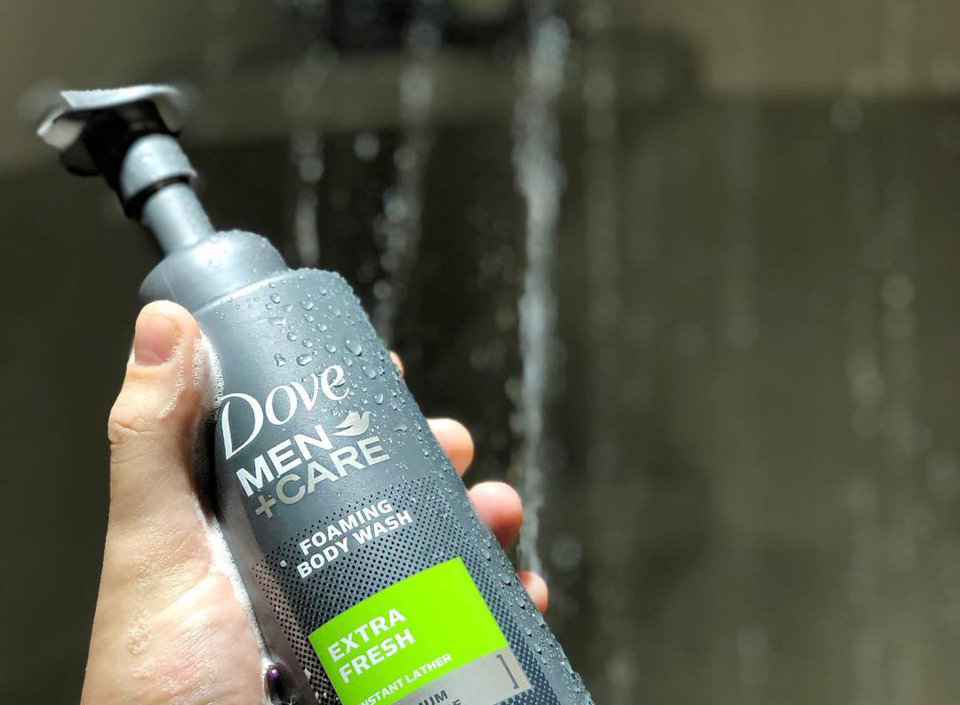
Using body wash on your face might be convenient, but this soap isn’t made for your face. Your facial skin is thinner and more tender than other parts of your body. According to dermatologist Rachel Nazarian, body soap can throw off the pH of your skin. Its harsh oils can also deteriorate all of your skin’s natural oils.
The rest is dry, irritated, and possibly red skin. Separate facial cleansers are made for a reason. Aim for a fragrance-free cleanser, since artificial scents may bother your skin. And if you have to use body wash, remember to moisturize afterward.
“Squeaky Clean” Is Too Clean
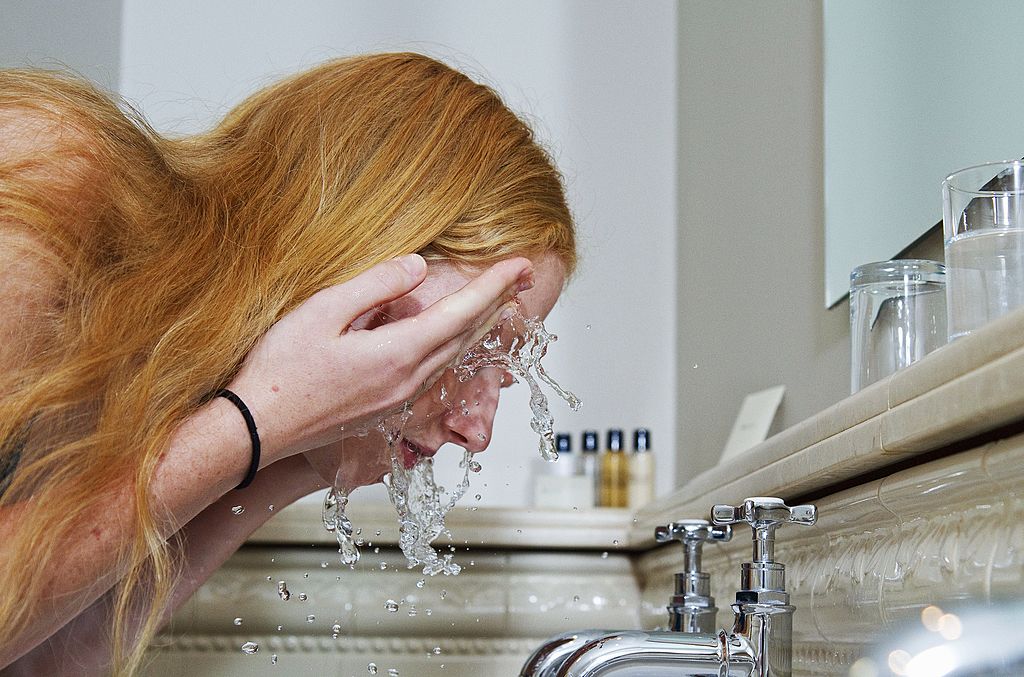
“Squeaky clean” is a good standard for counters and floors–not our skin. If your skin feels “squeaky clean,” you’re likely over-washing it. According to aesthetician Athena Hewett, this could create dry, flaky, red, and rashy skin. After all, over-washing strips the skin’s protective oils.
This problem is even worse for those with oily skin. Dermatologist Loretta Ciraldo said that this irritated, “squeaky clean” feeling can come from the wrong cleanser. “I see this a lot with acne cleansers,” she told Allure. If you think you’re over-washing your face, reduce the scrubbing time, or double-check your cleanser.
Moisturize Immediately For Best Results

If you wait between drying off and applying lotion, you’re making a mistake. Despite feeling wet, your skin will be dried out after a long while in a hot shower. Also, there’s a benefit to immediately lathering on lotion: your body will absorb it more effectively.
“Anything you apply after a shower will be more rapidly absorbed,” says director of cosmetic dermatology Heidi Waldorf. The Mount Sinai Hospital director recommends not putting any product that could irritate your skin. Instead, use an unscented lotion to keep your skin hydrated for longer.
You Probably Need To Clean Your Washcloth
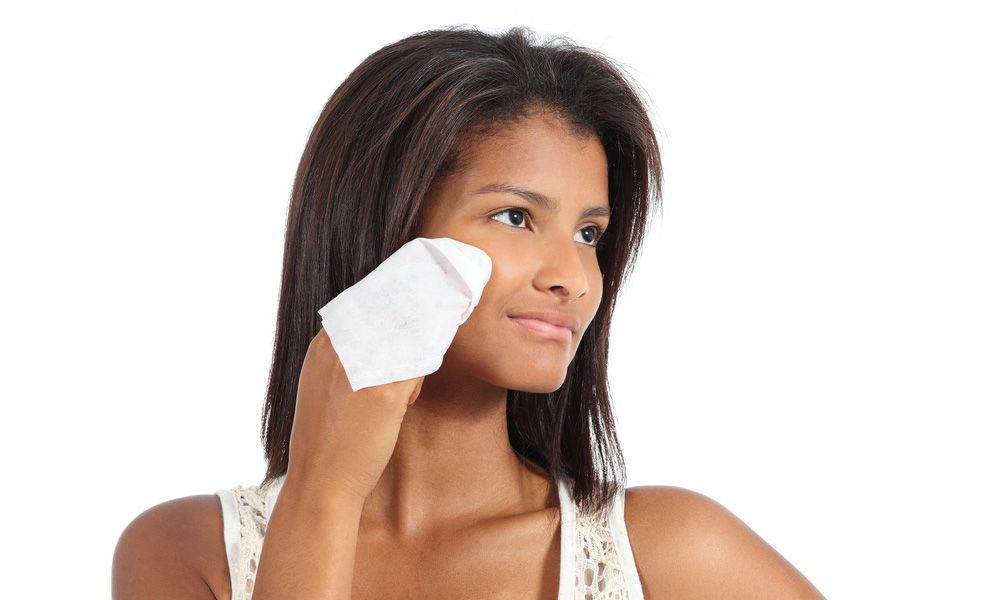
When’s the last time you washed your washcloth? Is it more than a couple of weeks? If so you’ll want to take action. Despite all the soap, your loofahs and washcloths get dirty quickly. According to dermatologist Sejal Shah, dead skin cells stick to washcloths, loofahs, and sponges. They stay on and host more bacteria.
In general, aim to wash your shower tools every couple of weeks. You can run washcloths and sponges through the laundry, and wring a loofah with soap. Researchers recommend using diluted bleach in safe quantities. When in doubt, replace any old shower tools.
Don’t Wash Your Hair Every Day
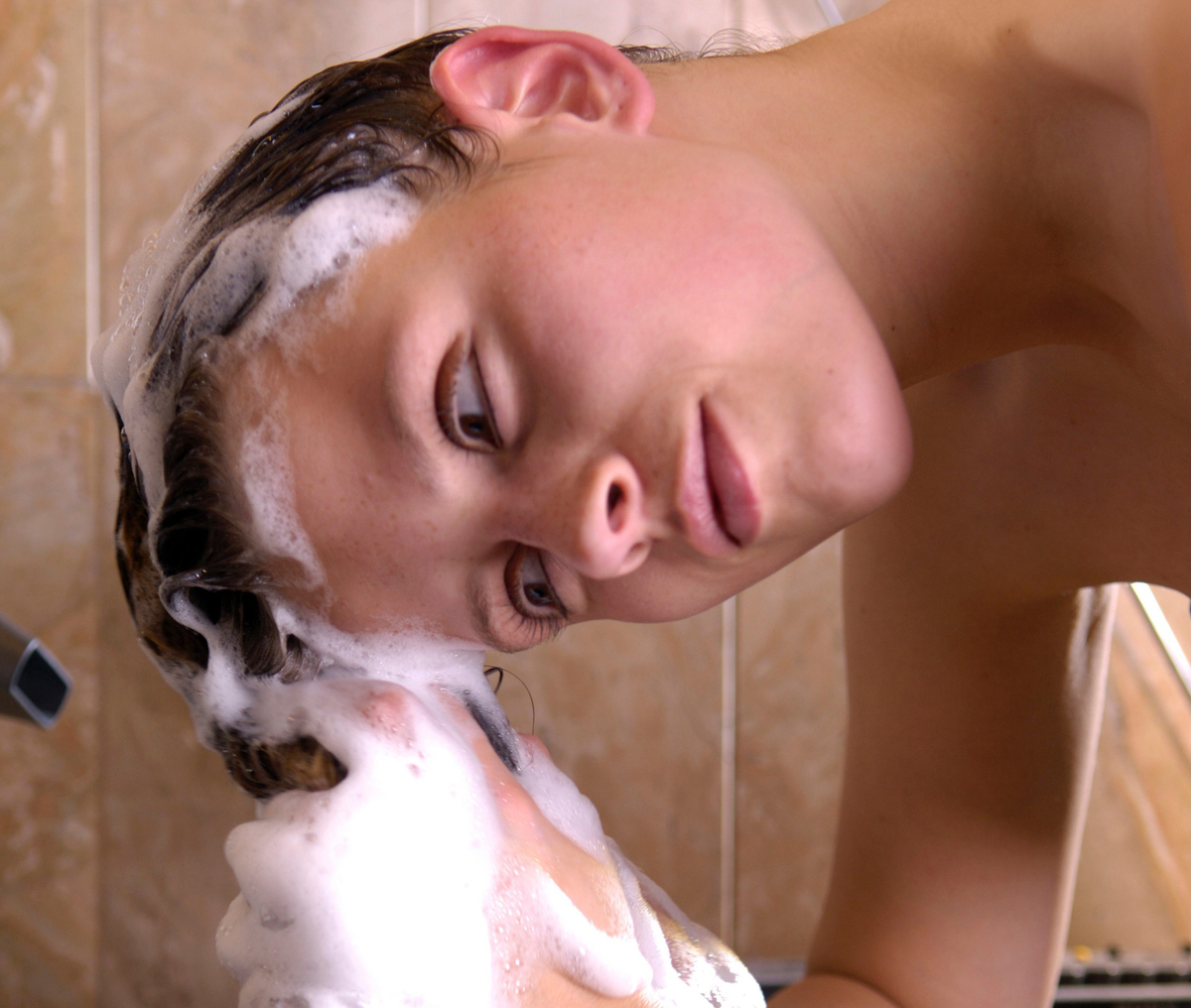
Although everyone’s hair is different, most people don’t need to wash their hair every day. Yes, shampooing removes harmful bacteria, but it also destroys healthy bacteria. Dr. Dominic Burg, a hair biologist, trichologist, and microbiologist, advises against washing your hair every day. Instead, clean your hair just twice or three times a week.
According to Burg, healthy bacteria create a microbiome that regulates the pH of your hair. When over-washing strips this biome, it clears the way for harmful bacteria to cause inflammation, scalp irritation, and fungi. If your hair feels oily every day even though you’re washing it, you could be using the wrong shampoo, says Burg.
Enjoy A Blast Of Cold Water

Cold shower. The phrase is enough to make many people shudder. Even so, research shows that cold showers can strengthen the immune system. During a 2016 study in PLoS One, people who took cold showers were 29% less likely to get sick. And participants only turned the shower cold for 30 to 90 seconds.
A blast of cold water could also improve your mood. According to research in Medical Hypotheses, these showers make neurotransmitters more sensitive to endorphins. Potentially, this response could help people with depression. Remember, just 30 seconds makes a difference.
Wash Your Feet!

Dripping soap isn’t enough to wash your feet. And, yes, you need to scrub your feet. “Your feet are covered with bacteria,” disease expert Dr. Amesh Adalja told SELF. “Said bacteria just so happen to cause foot odor.” Do you want those bacteria to stay on your feet and potentially cause infections?
The best way to clean your feet, according to Dr. Adalja, is to brush them. Exfoliating your feet with a sponge, washcloth, or loofah will effectively remove the bacteria. If you don’t do this regularly, you could get staph infections, warts, or athlete’s foot.
Don’t Leave Your Razor In The Shower

Just as washcloths gather bacteria in the shower, razors do as well. “By storing your razor in the shower, you’re increasing the frequency in which you’ll need to change your blade refill,” says Venus dermatologist Jody Levine. Warm, wet environments cause razors to rust more quickly.
Plus, damp razors are breeding grounds for bacteria. When you shave, you open pores in your skin, making infection far more likely. To prevent this, dry your razors after you use them. Store them upright outside of the shower. They’ll last longer and won’t harm your skin.
The Danger Of Wrapping Your Hair In A Towel

The American Academy of Dermatology warns that wrapping your hair in a towel after showering can damage it. How? Because hair is fragile when it’s wet. If done incorrectly, hair wraps can tug on your hairs and break them.
If you want to wrap up your hair, try to do so without twisting too tightly. Using a thin, delicate towel can reduce damage. Waiting for your hair to dry a bit and combing your hair beforehand will also decrease the potential damage.
Wash Your Towels More Often
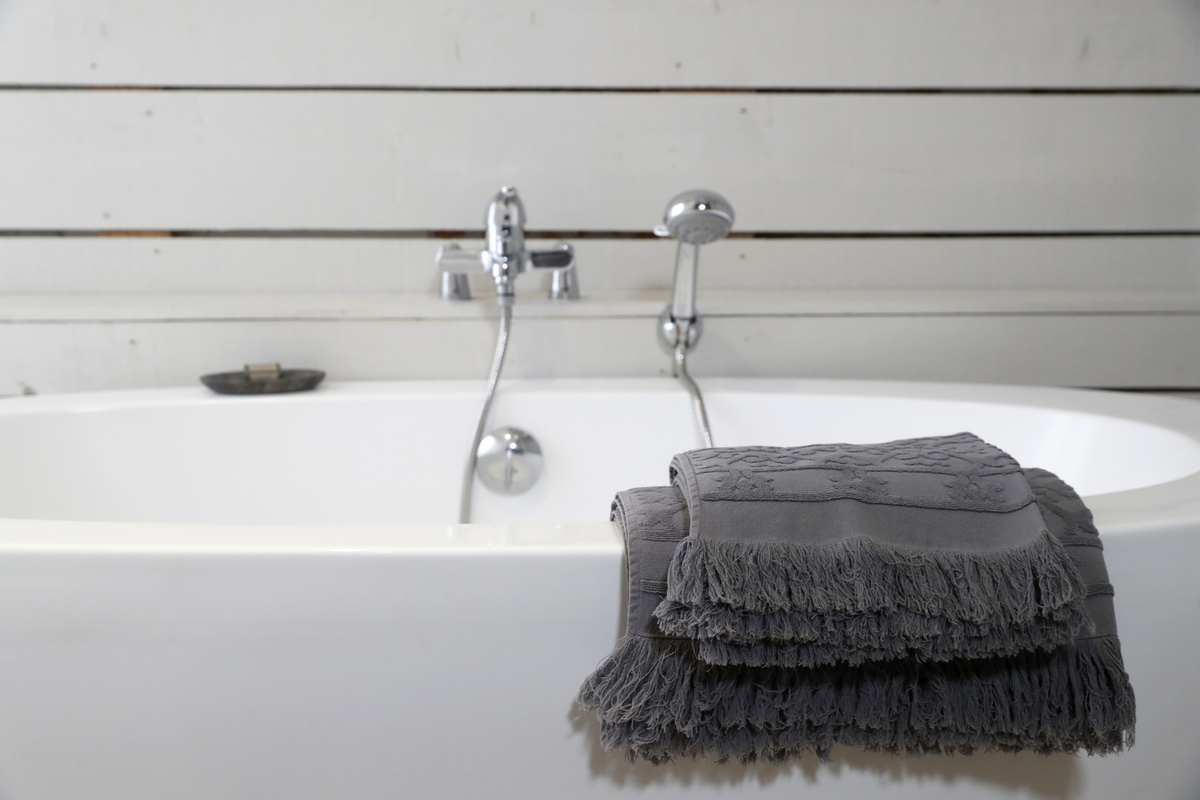
Most people understand that they should wash their shower towels. But according to the American Cleaning Institute, towels should be washed after three to four uses. According to Dr. Mehmet Oz of NSF International, shower towels develop mold, yeast, and bacteria from the warm moisture.
The frequency depends on how well your towels dry. If you throw them on the floor, they won’t dry fully, which allows more bacteria to fester. If you’re sick, you may want to wash your shower towel after each use.
Ditch The Soap Dish
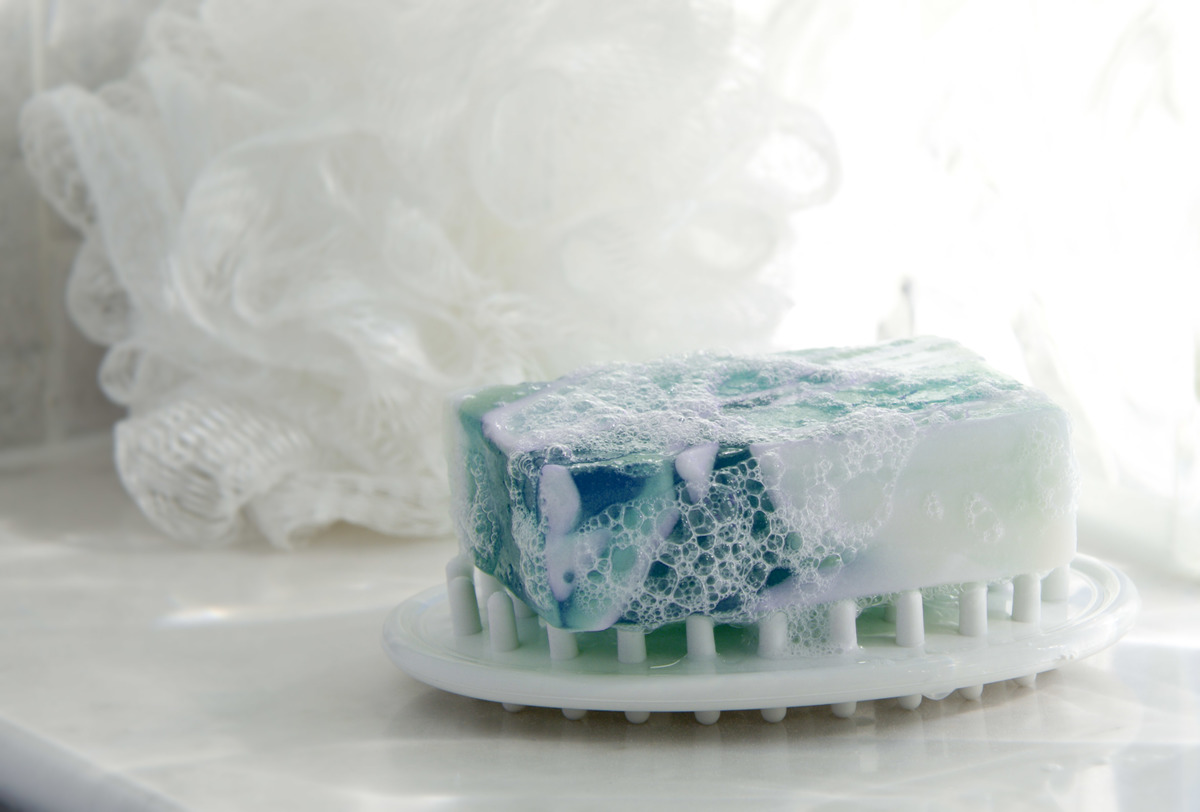
Although soap dishes come standard in almost every shower, they don’t help skin health. Elaine Larson, an associate dean of epidemiology at Columbia University, warns people about germ-infested soap. According to her, leaving the soap bar in the shower is the worst thing you could do.
Bacteria thrive on soap’s slimy coating, which they usually develop on a dish. The good news is that these bacteria won’t harm you unless you have a compromised immune system. Still, you may want to store your soap bar in a dry place.
Replace That Plastic Showerhead
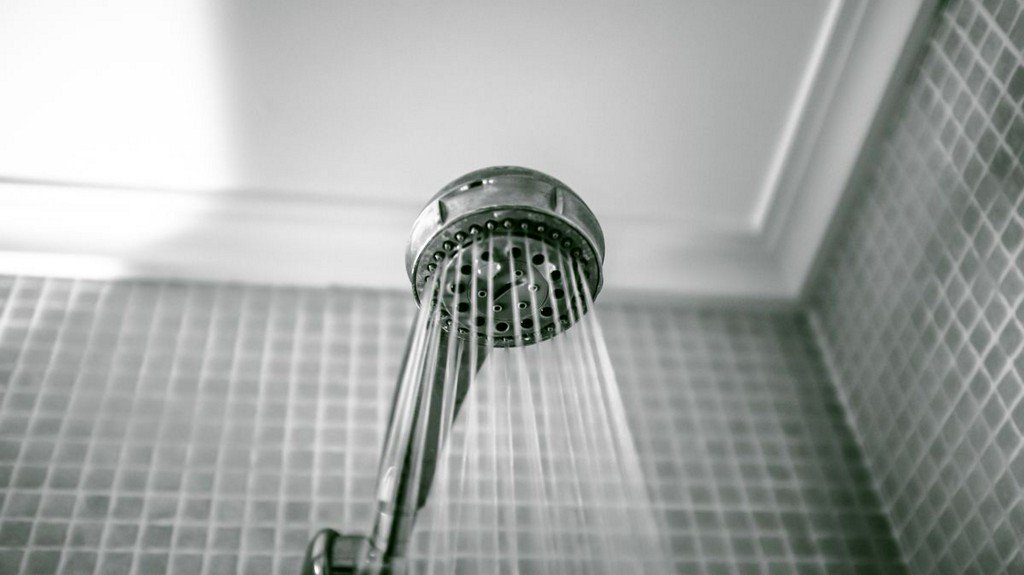
Plastic showerheads are worse than metal ones, at least when it comes to health. In an interview with NPR, Dr. Norman Pace, a professor of molecular, cellular, and developmental biology, described the difference. He said that plastic showerheads build up bio-film more than metal, which also gathers more bacteria.
It’s no wonder that scientists from the University of Colorado found more germs on plastic showerheads than on metal ones. You can tell what your showerhead is made of based on the connection material. If it’s a screw-on instead of a secure bolt, it’s likely plastic.
Are You Exfoliating Too Much?

Exfoliating cleansers and face masks have become common, and they may trick people into exfoliating every day. But this will damage your skin over time. Dr. Aanand Geria of Geria Dermatology recommends exfoliating once or twice a week. Any more will irritate your skin, especially on the face.
By exfoliating sparingly, you give your skin time to produce natural oils that help your skin. When you over-exfoliate, your skin might feel waxy or sensitive, according to Dr. Geria. Redness, peeling, and burning are sure signs that you should drop the exfoliator.
Turn Down The Temperature

If you like your showers scalding hot, you’ll be disappointed by this news. Hot showers are not healthy for your skin. According to dermatologist Erum Ilyas, hot water literally strips the natural oils off of your skin. Since these oils usually guard your skin, your body may feel itchy or dry after a hot shower.
The problem becomes more significant with age, Dr. Ilyas told Insider. As our skin thins, it becomes more sensitive to hot water. Lower your water temperature to warm. If that’s too cold for you, limit the time you spend in a hot shower.
Don’t Leave Your Loofah Hanging
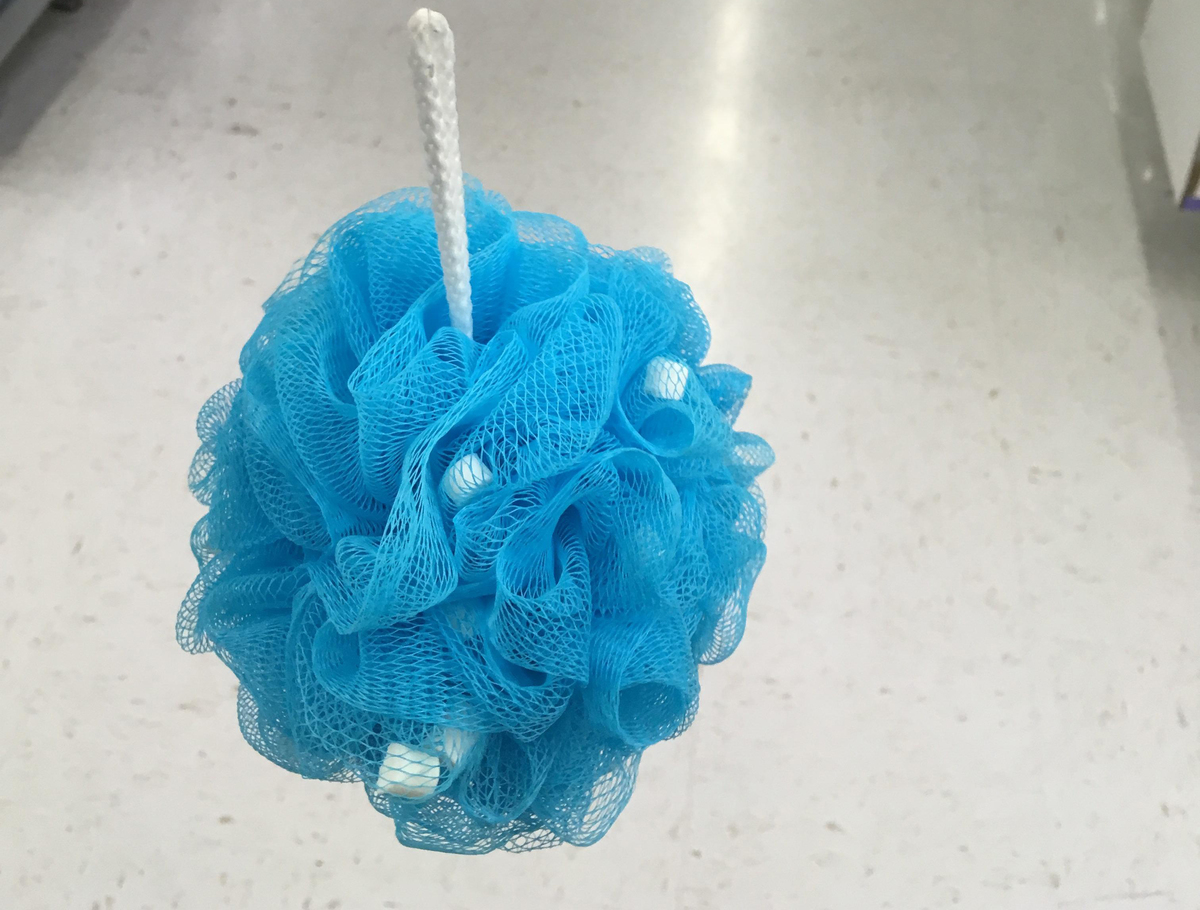
Do you leave your loofah, washcloth, or sponge in the shower between rinses? If so, stop. Bacteria thrive in moist, warm environments. Dermatologists J. Matthew Knight says that leaving loofahs in the shower sets up an environment for mold, yeast, and bacteria.
According to a study in the Journal of Clinical Microbiology, an average loofah hosts dangerous bacteria such as E. coli. These germs are more likely to infect cleanly-shaved skin. To be safe, dry your loofah or washcloth outside of the shower, or simply wash with your hands.
Avoid The Loofah After You Shave
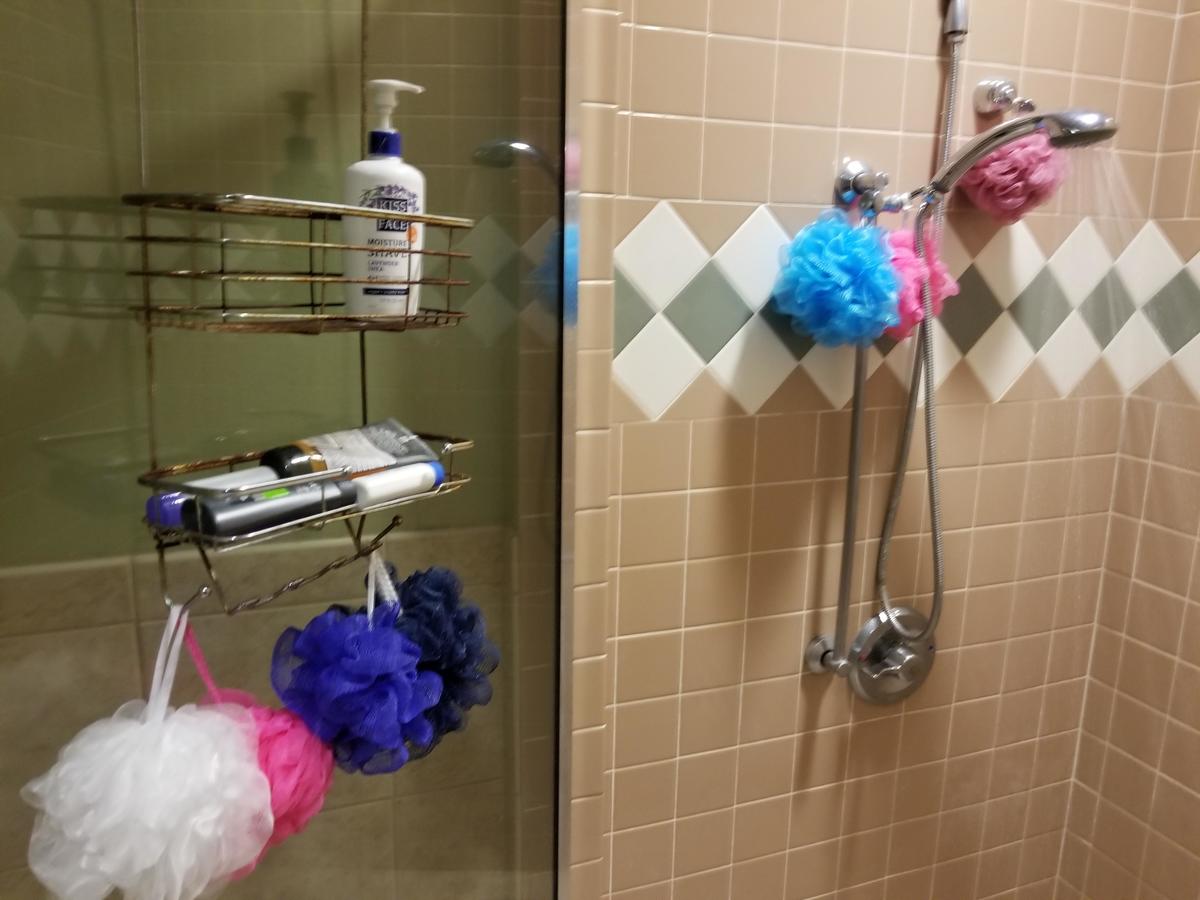
As you shave, your skin opens up tiny holes. These are perfect for infectious bacteria to sneak into. Since loofahs are bacteria breeding grounds, they aren’t ideal for a post-shave wash. Dermatologist Melissa Piliang advises against using loofahs or washcloths for a couple of days after shaving.
Dr. Piliang recommends only using your loofah once or twice a week. Your hands are enough to lather soap across your body, she says. Examine your loofah occasionally; if it smells or starts to mold, replace it.
Clean Your Bathtub Frequently

When is the last time you cleaned your bathtub? Despite all the soap, showers and tubs become dirty very quickly. Microbiologist Jason Tetro says that harmful bacteria such as E. coli thrive in the shower. TODAY Home adds that the shower’s damp environment accelerates mold growth.
Tetro recommends cleaning your tub every two weeks and disinfecting your shower curtains weekly. After cleaning, leave the shower door or curtains open. You’ll want enough airflow to dry the bathroom fully, so leave your restroom door open, too.
The Right Way To Use Conditioner

Many people pour conditioner on their scalp and work their way down. However, applying conditioner above your crown line may irritate your skin. Colorist Meri Kate O’Connor says that doing so makes your skin oily. Since oil gathers at the crown of your head, adding more oils makes it greasy.
That said, the American Academy of Dermatology recommends conditioning your hair after every shampoo session. O’Connor recommends starting with the bottom of your hair–the oldest, driest part of your hair. Gradually work your way up to prevent an oily scalp.
Why You Should Shower After Exercising
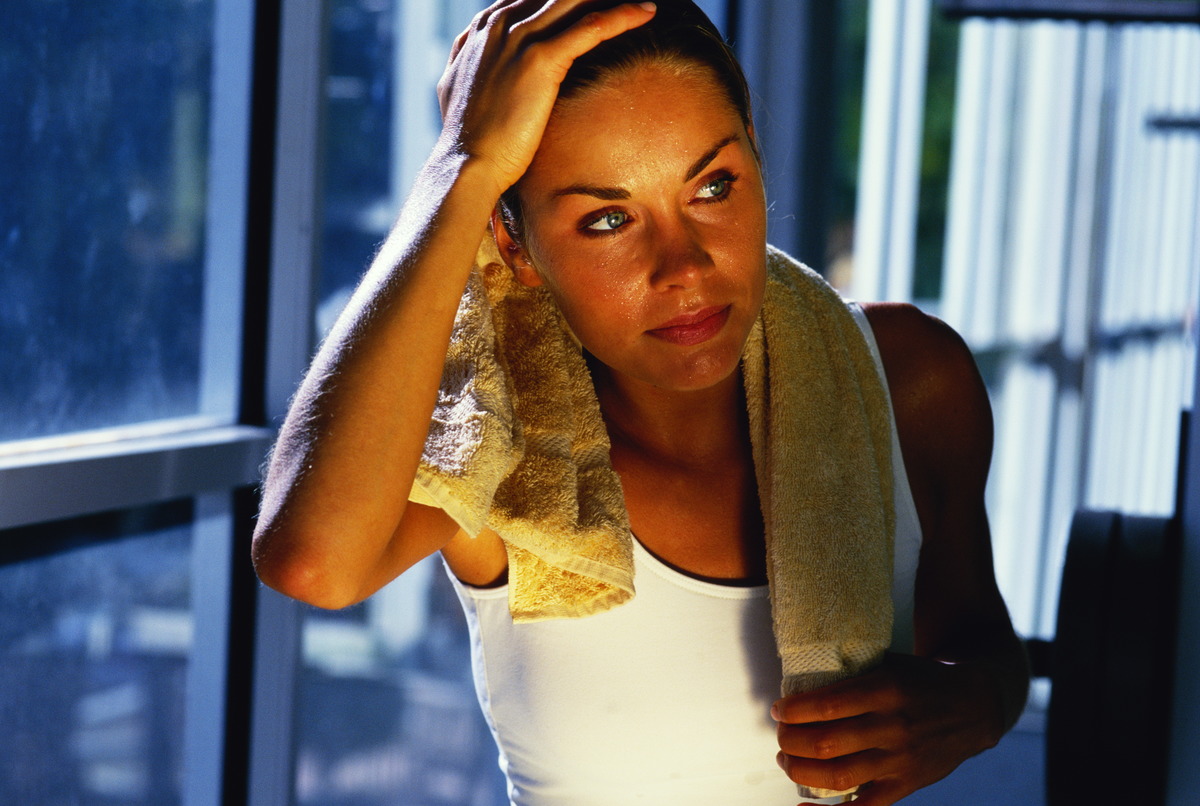
A post-workout shower isn’t just for the odor. It also prevents potential infections. According to women’s health director Holly Phillips, the leftover sweat allows bacteria to breed. In the best-case scenario, this could cause rashes and acne. In the worst case, it could lead to a staph infection.
That said, your skin won’t suffer from the occasional skipped shower. Changing into dry clothes and patting on some baby powder may help if you need to skip a rinse. When you do take a shower, all you need is a five-minute wash.
Stop Using Hard Water
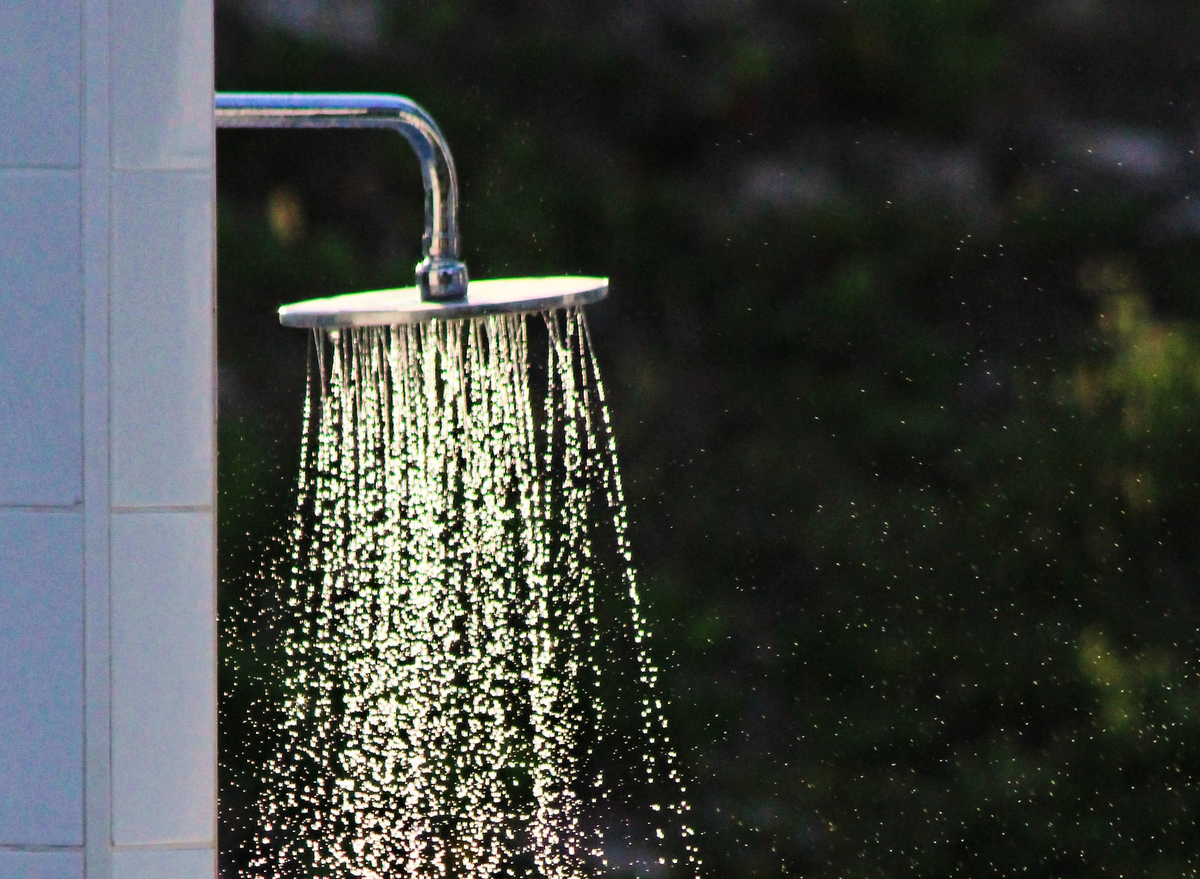
Unlike soft water, hard water contains high amounts of calcium and magnesium. According to the USGS, 85% of the water in the United States is hard. These chemicals can interact with your soaps and shampoos. When calcium and magnesium react with the fatty acids in soap, they make the soap ineffective.
Hard water can also build up in your hair, making it tangled or limp. If your hair has ever felt different after showering at a gym or hotel, it’s because water’s hardness varies by location. To prevent hard water, you can buy a water softener.
Ditch The Old Razor

After multiple drags across your skin, razors accumulate dead skin cells and bacteria. Don’t use a dull or rusted razor; it could nick you more, create little red bumps, and potentially spread infection. Dermatologist Whitney Bowe recommends replacing your razor blade after a few uses.
Fortunately, Bowe has tips for keeping your razor sharper for longer. Rinse your razor after each use, since traces of soap and shaving cream will cause it to rust. Dry it with a towel, and store it in a dry area such as a medicine cabinet.
Why Regular Towels Aren’t As Good As Bath Towels

Have you ever wondered why bath towels feel softer than regular towels? It’s not just for comfort; it’s for your hair health. According to celebrity hairstylist Monae Everett, the rough texture of standard towels may damage your hair.
When hair is wet, it’s more fragile. Wringing your hair with a rough towel may create damages along the hair shaft, which leads to tangles and frizz, says Everett. If you’re out of bath towels, use a microfiber towel or t-shirt. And when you pat your hair dry, be gentle.
Don’t Leave Hair In The Drain
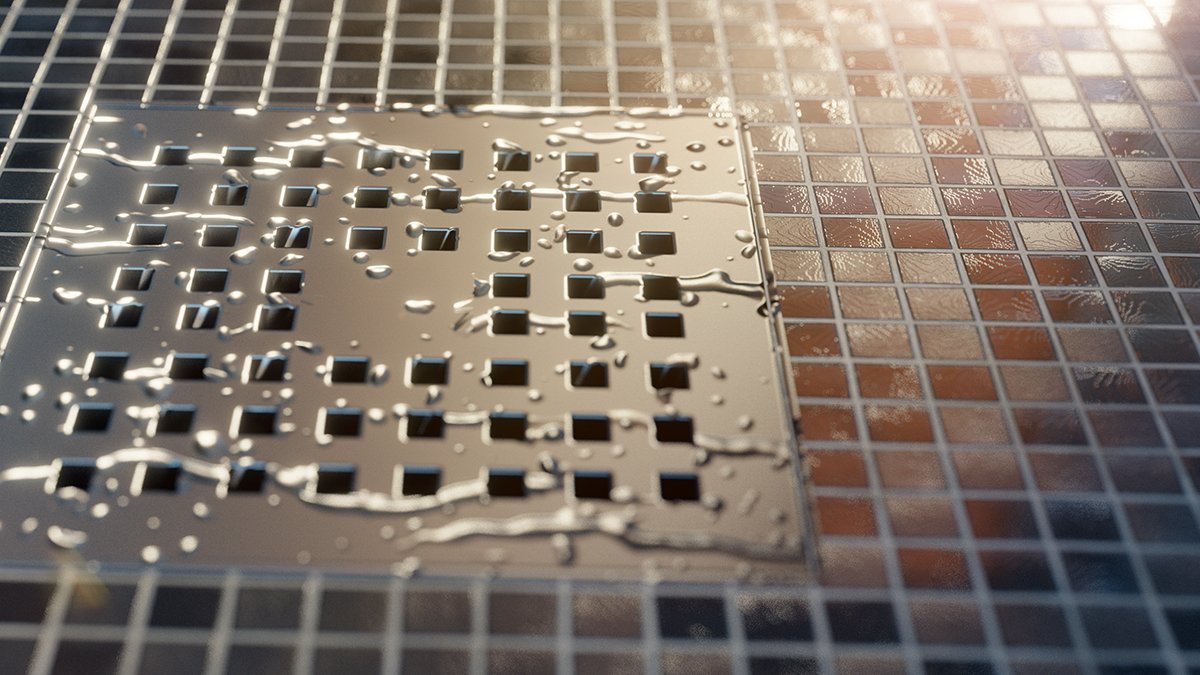
Yes, wet hair in the drain is gross. But if you let hair build up in your shower, the drain could clog. This will create problems for both your plumbing and your health. A clogged drain leads to stagnant water, which allows bacteria to gather more quickly. From a monetary perspective, stagnant water can create mold and even warp your shower floor.
A drain cover can prevent hair from tangling in your drain. Remove leftover hair after your shower is over. Although it seems gross now, it’ll only get worse over time. If your drain does clog, buy a drain cleaner.
Don’t Face The Showerhead When You Turn It On
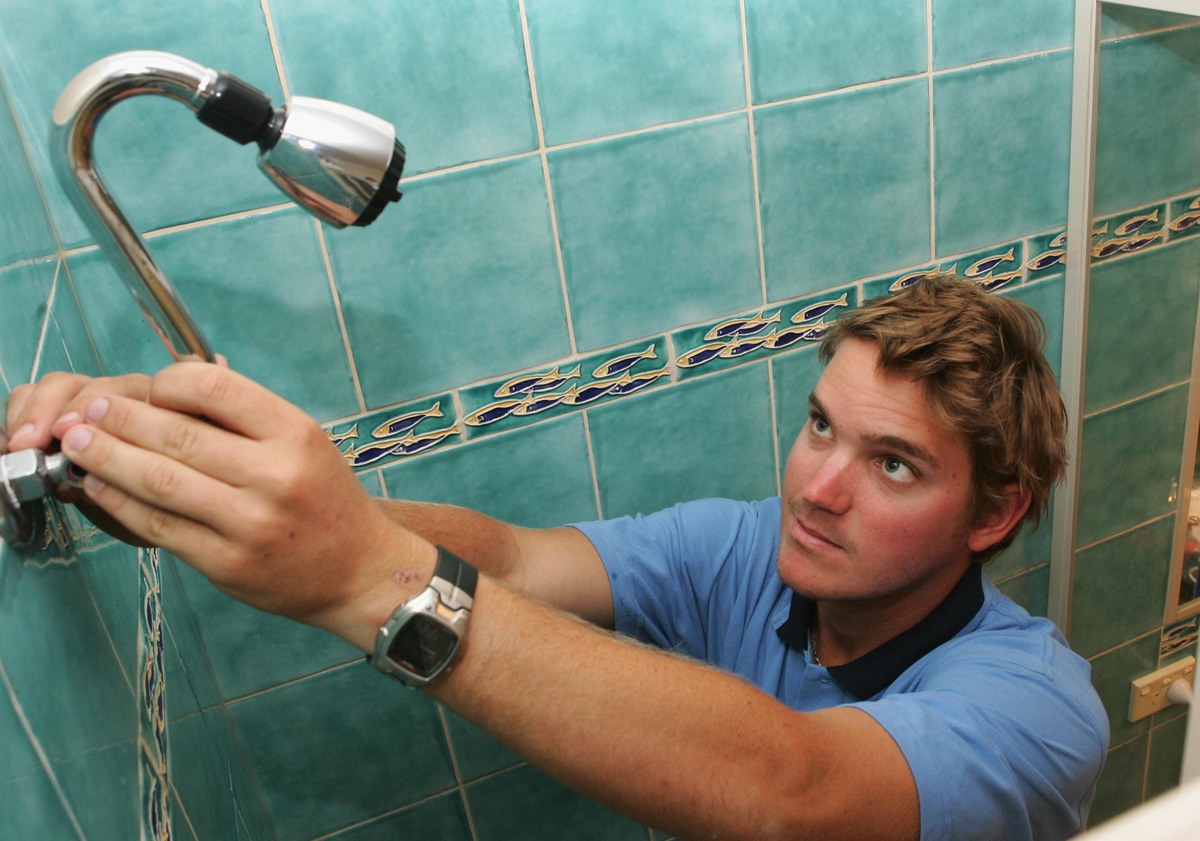
In 2009, researchers from the University of Colorado examined showerheads across three states. They discovered that over 80% of showerheads contain the infectious pathogen Mycobacterium, which could cause pulmonary disease. If you’re facing the shower when you turn on the water, you may get a face full of bacteria.
The good news is that these germs won’t affect those with a strong immune system. But immunocompromised people, children, pregnant women, and the elderly may struggle to fight it off. Clean your showerhead frequently, and let the water run for a bit before you hop in.
Don’t Skip Your Breakfast

We understand that it can be challenging to find time for breakfast in the morning, but hear us out on this one. When you don’t grub on something in the morning, your body will run on fumes, and your hair won’t get the proper nutrients it needs.
Whatever nutrients and minerals you consume in the morning go to more vital bodily functions before reaching your hair. If you skip this, it can lead to shedding and slower growth, so eat something before work!








